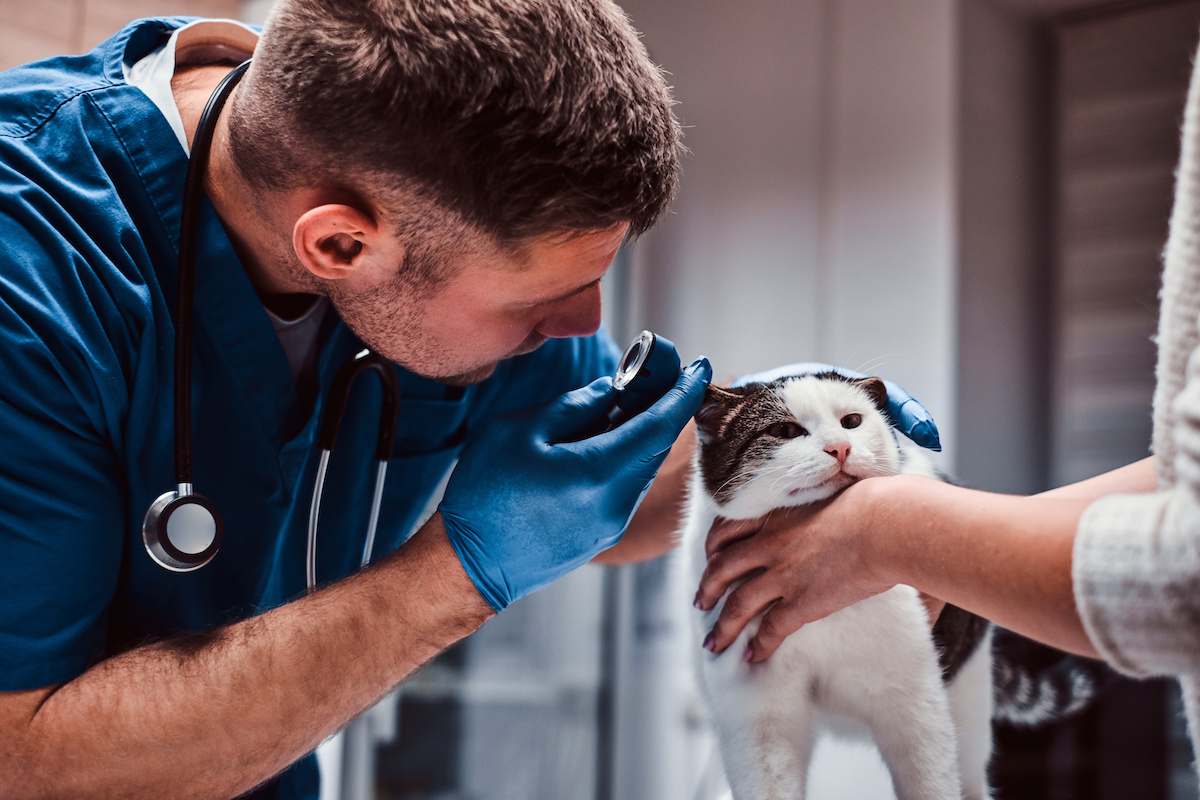Comprehensive Providers Provided by Vet McKinney for Your Furry Pals
Professional Tips for Family Pet Nutrition From a Vet
Recognizing the dietary demands of pets is crucial for their total wellness and durability. Veterinarians recommend a well balanced diet plan that accommodates specific aspects such as age, task, and breed degree. Yet, with the wide variety of family pet food options readily available, pet proprietors frequently locate themselves browsing a landscape rife with false information and myths. As we explore crucial pointers from veterinary specialists, it ends up being obvious that appropriate nourishment is not simply about what is fed however entails a deeper understanding of each pet dog's distinct demands. What key understandings could transform your strategy to animal nourishment?
Recognizing Nutritional Demands
Understanding the nutritional requirements of family pets is basic to ensuring their overall health and wellness and health. Much like humans, animals need a well balanced diet plan that gives essential nutrients, including healthy proteins, fats, vitamins, minerals, and carbohydrates. These nutrients play important duties in numerous physical features, such as power production, immune response, and tissue repair.
They are made up of amino acids, some of which are essential and should be acquired from food. Carbohydrates offer as a main energy resource and can sustain gastrointestinal health when they consist of fiber.
Each pet might have distinct demands based on variables such as age, type, activity degree, and health condition. It is essential to consult with a veterinarian to establish the particular nutritional needs tailored to your family pet's specific needs, guaranteeing they obtain optimum nourishment throughout their life phases.

Choosing the Right Food
It is vital to consider aspects such as age, health and wellness, type, and size standing when selecting a pet dog food. Senior family pets may benefit from foods designed to attend to age-related concerns, such as joint wellness or weight management.
When assessing animal food options, look for items that meet the Association of American Feed Control Officials (AAFCO) criteria, which ensure that the food offers balanced and total nourishment. Ingredients must be top quality, with genuine meat as the key resource of protein. Avoid foods with extreme fillers, fabricated additives, or by-products, as these can interfere with the overall nutritional worth.
Consulting with a vet can give tailored recommendations based on your animal's certain demands. In addition, transitioning in between foods should be done slowly to prevent gastrointestinal trouble. By taking these steps, pet owners can make certain that they are supplying their hairy companions with the very best possible nutrition for a healthy and happy life.
Common Misconceptions About Animal Food
Unmasking misconceptions bordering pet food is crucial for making sure ideal nutrition for our furry companions. One widespread misconception is that all grain-free diet regimens transcend for family pets. Actually, grains can offer vital nutrients and are not inherently harmful. A well balanced diet regimen can include grains, offered they are not creating any kind of allergies or intolerances.

In addition, many pet proprietors think that "costs" or "all-natural" tags ensure greater high quality. Nonetheless, these terms are usually uncontrolled and do not always show exceptional nutritional value. It is essential to look at active ingredient checklists and nutritional profiles rather.
Special Factors To Consider for Various Breeds
When it comes to pet nourishment, special considerations have to be taken right into account for different breeds, as each type can have distinct dietary requirements and sensitivities. As an example, big breeds such as Great Danes and Saint Bernards are susceptible to bone and joint issues and might benefit from diet regimens developed to support joint wellness, typically including components like glucosamine and omega fatty acids. Alternatively, little breeds like Chihuahuas might need greater calorie densities to fulfill their energy levels, demanding formulations that are abundant in nutrients but lower wholesale.
Additionally, specific types may be inclined to details health and wellness problems, such as see this food allergies or level of sensitivities. Breeds like Labrador Retrievers might battle with weight problems, calling for careful portion control and a well balanced diet regimen to maintain a healthy weight. On the various other hand, types such as Dachshunds may be much more prone to back issues, triggering a requirement for diet regimens that advertise spinal wellness and weight management.
Eventually, recognizing these breed-specific nutritional needs is vital for pet dog proprietors. Consulting with a veterinarian can help in selecting the most proper diet plan customized to an individual animal's type, wellness, and age standing, ensuring optimal nutrition and well-being.
Importance of Regular Veterinary Check-Ups
Understanding the one-of-a-kind nutritional requirements of various breeds is just one element of accountable pet dog ownership; normal vet exams play an important function in keeping overall health. These examinations are necessary for early discovery of health issues, ensuring that any possible troubles are attended to before they become significant. Regular gos to allow vets to monitor your animal's weight, oral health and wellness, and important signs, which are crucial indications of general web wellness.
In addition, regular exams allow veterinarians to give tailored dietary recommendations based on your pet dog's private health condition - Vet Mckinney. As pets age, their nutritional demands might alter, and changes may be essential to stop obesity or nutrient shortages. Preventive treatment, including vaccinations and parasite control, is additionally an essential part of these sees, safeguarding your family pet from various illness
In enhancement to health examinations, these consultations provide a superb opportunity for family pet proprietors to talk about behavior changes or issues concerning their pet's eating behaviors. By prioritizing regular veterinary exams, pet owners can make sure a much longer, healthier life for their fuzzy buddies, inevitably enhancing their lifestyle.
Final Thought
Finally, ensuring optimal animal nourishment calls for a thorough understanding of individual dietary requirements, proper food option, and recognition of prevalent myths. Special considerations for various breeds should be represented, and routine vet examinations play an essential duty in keeping track of health and dietary adjustments. Sticking to AAFCO standards and talking to veterinarians before making nutritional adjustments will certainly improve the wellness of family pets, inevitably adding to their durability and high quality of life.
With the wide range of animal food options available, pet owners often find themselves browsing a landscape raging with misinformation and myths. Each family pet may have special needs based on elements such as age, breed, activity degree, and health and wellness status. It is crucial to take into consideration variables such as age, breed, health, and dimension status when picking a family pet food. Senior pets might benefit from foods made to attend to age-related issues, such as joint wellness or weight administration.
Comprehending the unique nutritional needs page of various breeds is just one aspect of liable animal possession; regular vet check-ups play an essential duty in keeping overall wellness.